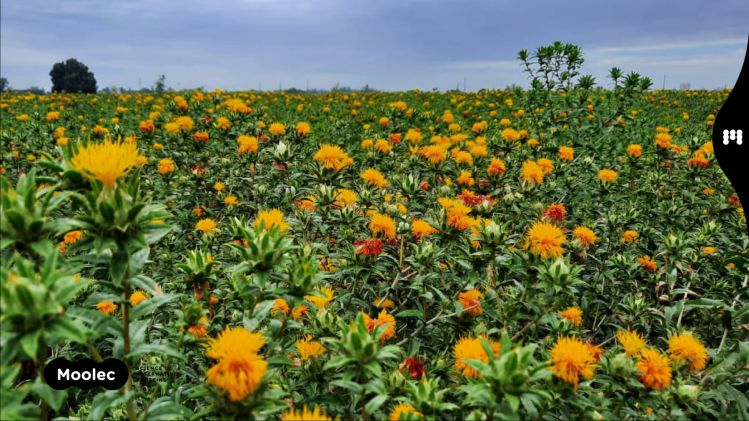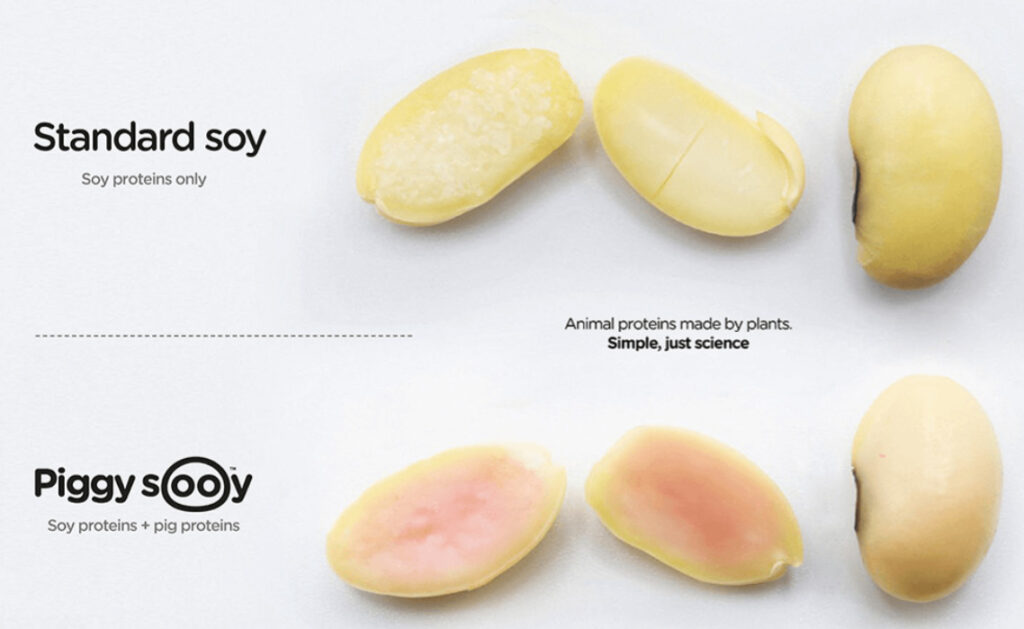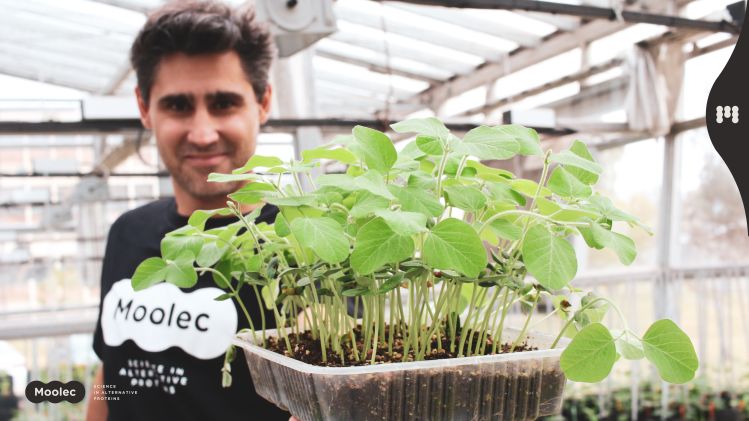Ag biotech startup Moolec Science has raised $30 million in cash and in-kind contributions from strategic investors via convertible notes.
A spinout of Bioceres Crop Solutions, Moolec began trading on Nasdaq in January via a SPAC (special purpose acquisition company), but has seen its stock drop from a high of almost $20 to under $3 in recent weeks.
It is best-known for its molecular farming platform, which bioengineers plants such as yellow peas and soybeans to express bovine and porcine proteins claimed to improve the taste, texture, nutrition, flavor, and color of meat alternatives.
However, its most advanced products are Chymosin SPC, a bovine protein (enzyme) used in cheesemaking; and a nutritional oil containing gamma-linoleic acid (GLA), which are both expressed by a genetically engineered strain of safflower.
The GLA-rich oil—which has a ‘no questions letter’ from the FDA affirming its GRAS (Generally Recognized as Safe) status—also has a thumbs up from USDA’s Animal and Plant Health Inspection Service, which means Moolec no longer needs permits to import, move interstate or grow the plants in the field in the US.
‘A challenging financial market’
Under a deal announced Tuesday, Moolec will issue a convertible note due in 2026 to Grupo Insud for $21 million with a strike price of $6/share. This will be issued against a cash payment of $10 million and in-kind contributions to be made by Insud to Moolec including “access to Insud’s industrial capabilities.”
The transaction follows a deal with Bioceres under which Moolec has secured the supply of 15,000 tons of soybeans, which will be paid for through the issuance of a convertible note. Together the convertible notes total $30 million in cash and in-kind contributions.
“This capital raise strengthens our financial position and allows us to accelerate our business model in a challenging financial market. The notes provide healthy optionality for Moolec to convert into common shares or cash in three years’ time. Cash proceeds will be used to continue funding key R&D projects and in-kind contributions will secure the needed working capital to ramp up our commercialization plan and product development initiatives.” José López Lecube, CFO, Moolec Science


Meat proteins… from plants?
Moolec has not confirmed which meat proteins it is expressing in soy and pea, although it recently revealed it had produced ‘Piggy Sooy’ soybeans in which more than a quarter (26.6%) of the soluble protein fraction was “pork protein.”
CEO Gaston Paladini told AgFunderNews that more details will be released shortly. “What we can share is that Piggy Sooy, as a platform, is not expressing just one gene. We are working on several meat molecules/proteins in different R&D projects.”
Hybrid ingredients
Rather than spending significant sums on extracting and purifying the meat proteins from the plant protein, Moolec plans to sell soy and pea proteins in which meat proteins are embedded in the matrix, he said.
“Moolec’s plan is not to purify and extract the target molecule the plant expresses,” he told us. “It makes sense for us to produce hybrid ingredients between plant and animal proteins, together. Affordability and functionality are our top priorities. And Moolec is targeting the whole processing meat market, not just the alternative protein market.”
Moolec, which formed a precision fermentation joint venture with Grupo Insud in 2021, is also working on producing meat proteins via yeast fermentation.
The business model
Paladini is in conversations with potential partners such as ingredient processing companies that are interested in Moolec’s technology, and has the option to license its IP, or to work with them in the downstream processing stage to recover the proteins and use their networks to commercialize them, he explained.
“But we also have our own capabilities to commercialize: an industrial facility [acquired from ValoraSoy] with 10,000 tons/year of soybean crushing capacity [in Argentina].”
Further reading:
Molecular farming: IngredientWerks grows heme protein in corn at ‘unprecedented low cost’
FDA warns molecular farming startups of risks if food allergens are not properly managed
Trendwatching at Future Food-Tech, part two: From upcycled prebiotic fibers to molecular farming 2.0





